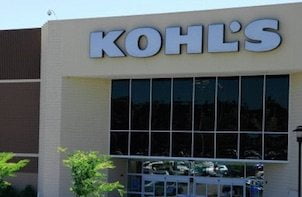“Ecommerce Briefs” is my occasional series on news and developments from online merchants. In this installment, I’ll address: Amazon’s new partnership with Kohl’s; activity in the U.S. online food delivery market; and the implications of the recent bankruptcy filing by Toys”R”Us.
Amazon and Kohl’s Form a Partnership
Amazon is reaching further into the brick-and mortar arena. It has formed a partnership with retail chain Kohl’s, which has agreed to accept customer returns of goods shipped by Amazon in 82 of its stores in Los Angeles and Chicago, starting this month. Kohl’s will pack and ship return items at no charge to the customer.
Kohl’s announced it would also provide space for an “Amazon smart home experience” at 10 Kohl’s stores in the Los Angeles and Chicago areas. Customers will be able to purchase Amazon devices, accessories, and services from a 1,000-square-foot dedicated zone staffed by Amazon associates.
This arrangement, which is a test, allows customers to touch and use Amazon devices, something the online merchant cannot currently provide. The benefits for Kohl’s are not as well defined, however.
Kohl’s wants to drive more foot traffic to its stores but this arrangement could be risky as Amazon has a habit of competing with its partners. Brick-and-mortar chains that have partnered with Amazon previously have shut down — the Borders bookstore chain, for instance — or have gone into bankruptcy, such as Toys”R”Us (see below).
Food Wars
Activity in the food segment is propelled by the notion that Americans no longer prepare meals for themselves.
In September, Amazon teamed up with online food on-demand delivery company Olo, which serves 200 multi-location restaurants, such as Applebee’s, Chipotle, Five Guys, and Jamba Juice. Amazon will provide delivery via its Amazon Restaurants service. Limited to Prime members, the service was established in 2014, but never gained traction.
The integration of Olo’s platform with Amazon Restaurants will enable restaurants to easily change menus without having to deal with several delivery firms.
Another food delivery acquisition was announced by grocery chain Albertson’s. It purchased Plated, an online meal kit purveyor, for about $200 million, to better compete with Amazon, which registered a meal preparation trademark in July. Albertson’s will sell Plated meal kits in its stores and eventually deliver them with its trucks. Albertson’s has 2,300 stores in the U.S., under several different chain names.
Meal kit companies have been spending massive amounts of money trying to attract new subscribers and Plated perhaps did not have enough resources to compete. In its IPO filing, meal kit provider Blue Apron revealed that it spent $144 million on marketing in 2016.
Costco just introduced two new delivery services this month. It has launched a nationwide, two-day delivery service for 500 non-perishable goods. Free delivery is available for orders over $75 and goods are delivered via UPS. Costco also expanded its same-day grocery delivery service with Instacart. Offered in 376 locations, it includes 700 fresh and dry goods items.
Toys”R”Us Files for Bankruptcy
Just ahead of the key holiday shopping season, Toys”R”Us filed for U.S. Chapter 11 bankruptcy. The toy retailer hopes to get relief from $4.9 billion in debt left over from its 2005 $6.6 billion acquisition by private equity firms. The company is required to make Interest payments of $400 million in 2018 and $1.7 billion in 2019. Toys”R”Us had revenue of $460 million in 2016 but almost all of it went to pay interest. The company is too heavily burdened with debt to continue to operate under its current structure.
This is a cautionary tale for companies that enter into heavily leveraged, high-fee private buyouts. Over the past 12 years, the deal has cost Toys”R”Us more than $5 billion — $470 million in advisory fees and interest to the private equity firms and $4.8 billion in interest on the acquisition debt.
The forecast for the holiday season for Toys”R”Us is uncertain. Suppliers may be reluctant to ship products under the current circumstances. The company owes about $300 million to various toy manufacturers and some of the smaller ones might have to file for bankruptcy themselves if the court awards only pennies on the dollar for what Toys”R”Us owes them. Stocks of several toy manufacturers dropped after the Toys”R”Us announcement. Amazon and Walmart will both benefit if Toys”R”Us cannot put inventory on its shelves during the holidays.
Toys”R”Us C.E.O. Dave Brandon stated that prior to the holiday shopping season the company would redesign stores with a focus on interactive play areas and augmented reality. It is expected that some of the firm’s 880 U.S. stores will close in 2018.
